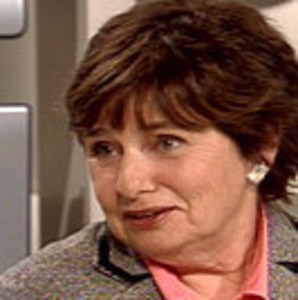
Mordecai Richler is Canada’s biggest claim to literary fame. If he had been born and lived in any other province but Quebec there would have been an outpouring of ideas on how to commemorate his life and achievements: perhaps renaming streets in his honour, building schools bearing his name, or erecting a statue featuring the disheveled genius wryly peering over his pince-nez at a smoked meat sandwich on wry…er, rye.
Instead Montreal’s political mandarins have decided he is getting a gazebo — a crummy little open pavilion at the foot of Mount Royal, with no known connection to the author. A place for people to come in out of the rain. Not quite a public toilet, but close.
That’s like naming the change house at an outdoor skating rink after Margaret Atwood, a pellet dispenser at the zoo after Yann Martel, or a maintenance shed after Margaret Laurence. But then, if Mordecai Richler had been born outside Quebec, maybe he wouldn’t have been inspired to the kind of savage indignation that made him such a household word (and often not in a good way) in his native Montreal.
Let’s face it. Richler’s satiric talents were honed to gleaming acuity by the constant irritation he experienced at growing up as a Jew and an Anglophone in an environment that was not, let us say, overflowing with the milk of multicultural tolerance and religious pluralism. Anyone who has read Mordecai’s coming-of-age work knows just what I am talking about.
Quebec did become more open, inclusive and tolerant over the years (no, seriously; I live in Montreal; life is good for Anglophones who have learned to speak decent French, and Jews who integrate into their neighbourhoods). But Mordecai and Quebec never established an entente cordiale.
While other anglos who toughed out the language wars made their peace with the French fact, and once-militant francophones relaxed once they saw that French was no longer threatened, Richler fossilized in terms of his Quebec cultural identity. Because he spent so many years in England, Richler remained psychologically fixed in his adversarial perspective. He never did learn to speak any French at all, or if he did, he kept it well hidden from public exposure.
And his international fame gave him a huge forum for spleen-venting. His brutal attack on Quebec’s ethnic nationalism, O Canada, O Quebec: Requiem for a Divided Country, which first appeared as a New Yorker article, utterly humiliated Quebec’s ruling elites.
You may think Quebec got exactly what it deserved, and I might agree with you. But that doesn’t mean I don’t understand why Quebec is still smarting from the wounds Richler inflicted on his compatriots.
If Richler is considered an outsider who took advantage of the perks Quebec had to offer – the exceptionally satisfying cosmopolitain life Richler enjoyed in downtown Montreal; his beautiful, bosky retreat in the Eastern Townships – yet who confined his social and cultural life to a circumscribed huddle of anglo friends and admirers, I feel a certain sympathy for their discomfort.
On the other hand, a park pavilion? That is adding yet another insult to the many already dished out to him in his lifetime. The man is dead. He put Montreal on the map. It doesn’t matter whether you liked him or hated him; he was one of us and he achieved great things.
Give the man a street name at the very least, or a building, or a statue (too bad the Ritz Carlton, where Richler crossed the road from his apartment to drink every day he was in Montreal, is being renovated as condos; a statue in the bar there would have been great).
But if you are going to insult him, do it with a little more flair and panache and honesty. Make sure everyone realizes that you hated him.
Here’s an idea: Montreal is riddled with potholes. The French for “pothole” is “nid-de-poule,” literally a chicken’s nest. How about if the word is officially changed to “mort-de-caille(ou)” which means “death of stone” (well, death of pebble, close enough). Henceforth let all Montreal potholes be called Mordecais. In this way, his name will forever be on every Montrealer’s lips, because Montreal potholes are ubiquitous and eternal, and yet not in a good way – “Damn! Another cursed Mordecai!” I think Richler himself would have appreciated the irony, and approved.
National Post
.





















Laissez un commentaire Votre adresse courriel ne sera pas publiée.
Veuillez vous connecter afin de laisser un commentaire.
Aucun commentaire trouvé